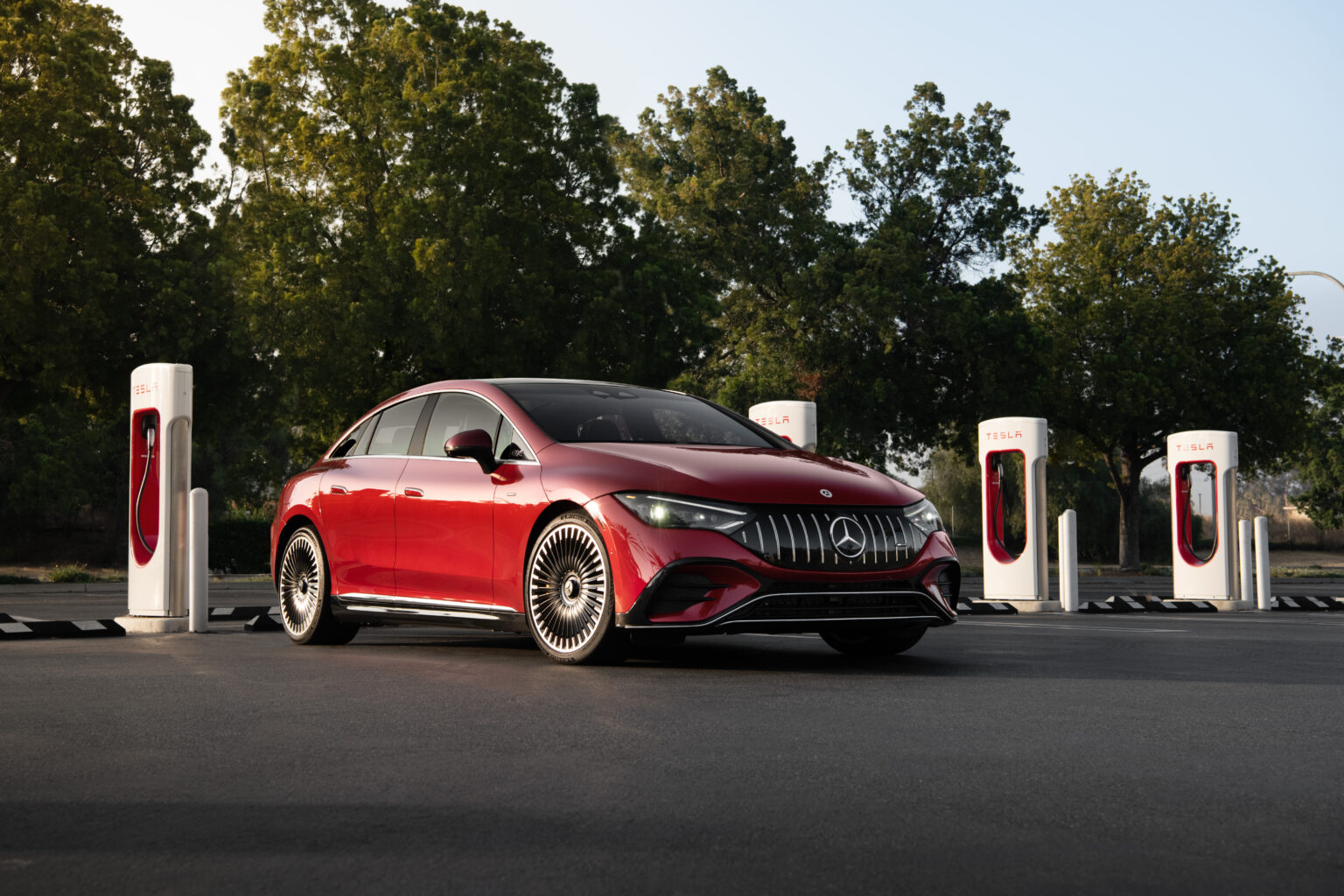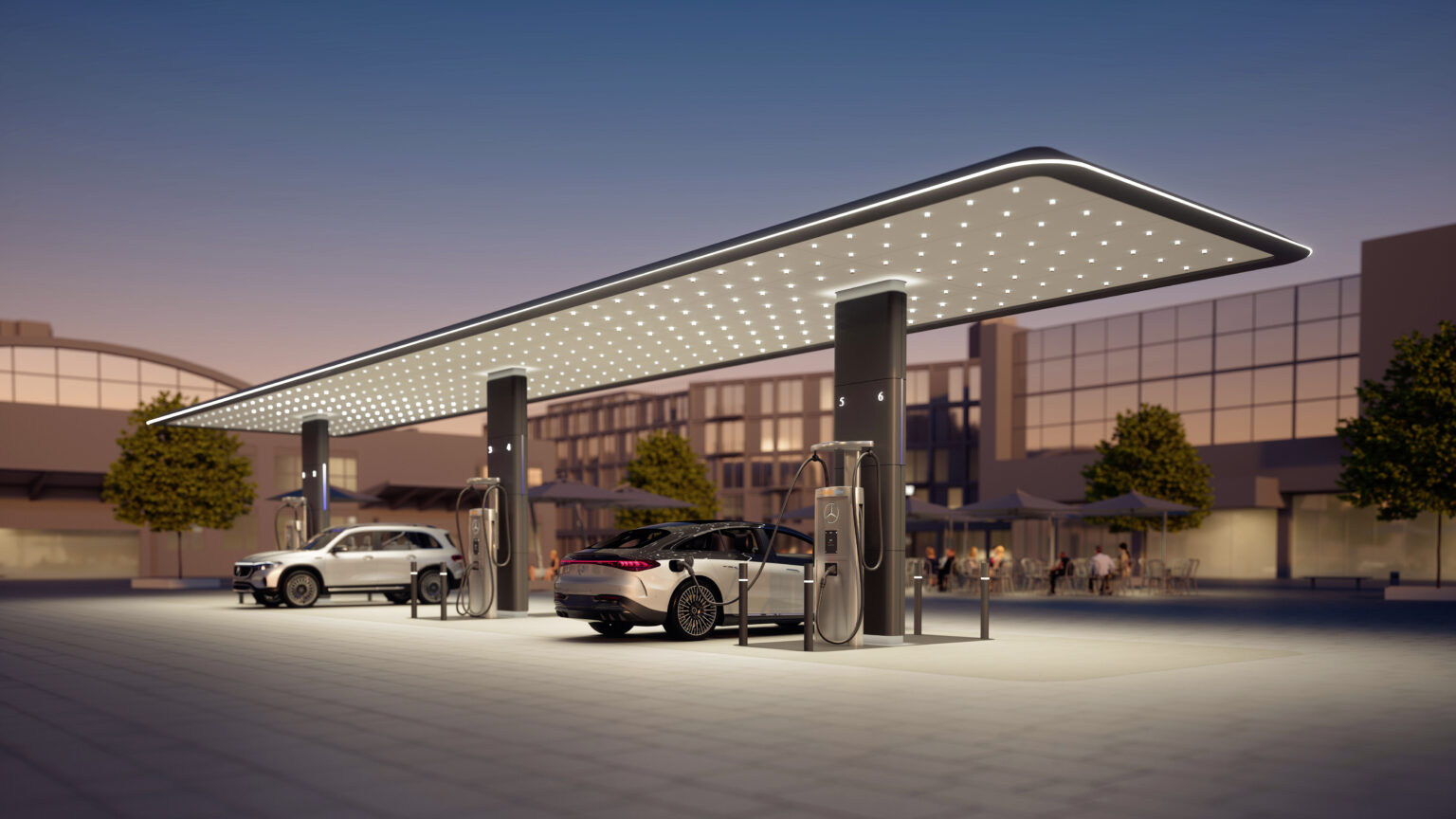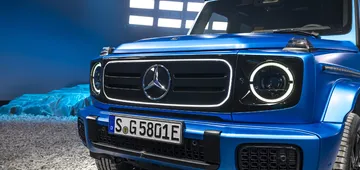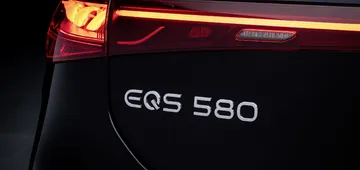Mercedes Joins NACS Charging Initiative and Gains Tesla Supercharger Access!
In a recent announcement, Mercedes has revealed its adoption of Tesla's North American Charging Standard (NACS) in its efforts to create a universal plug for electric vehicles (EVs). Starting in 2025, Mercedes will be the first German automaker to include NACS ports in its EV lineup, giving its customers access to Tesla's extensive Supercharger fast-charging network. In the meantime, an adapter will be provided to enable existing CCS-equipped vehicles to use NACS chargers.

Mercedes-Benz plans to enhance the EV experience for its customers by building the global Mercedes-Benz High-Power Charging Network, with the first sites opening this year. By integrating the Supercharger network into its existing connected services, Mercedes owners will gain access to Tesla's charging stations through the company's navigation system and app.

With this collaboration, Mercedes-Benz will expand its "Mercedes me Charge" service, which currently offers access to 90,000 charging stations, by more than doubling the number with 120,000 new options from the Supercharger network. Additionally, Mercedes intends to construct over 400 new North American charging hubs with more than 2,500 individual stations, equipped with both CCS and NACS plugs. This effort aligns with their broader plan to establish more than 2,000 charging hubs worldwide, featuring an additional 10,000 stations.
Also, Polestar recently joined the list of automakers adopting the NACS port, following Mercedes-Benz. It's evident that more automakers will embrace this technology in the future, indicating a growing trend towards the universal use of NACS ports in electric vehicles.


